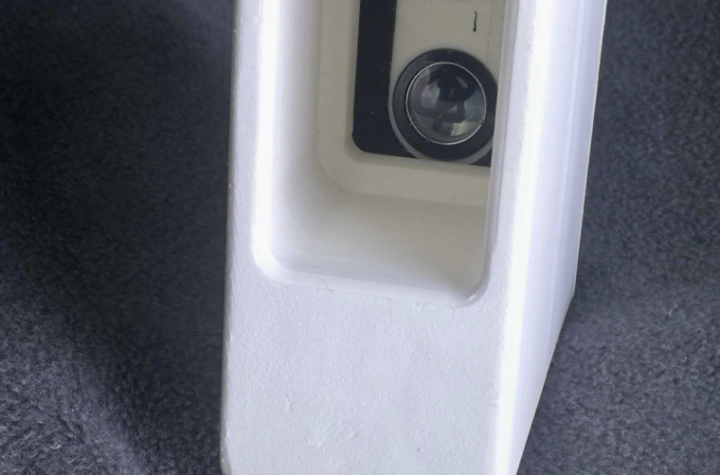
CSA Catapult is pleased to confirm that Newport has been chosen as part of a national network of cutting-edge centres to enable faster design, development and industrialisation of power electronics, electric machines and drives (PEMD) across seven sectors – including automotive, aerospace and energy.
The centres and their 35 world class partners backed by £30m, will be a base for state-of-the-art equipment and will bring together the UK’s innovators and manufacturers in electrification research and development. The network will help propel the UK’s advanced technologies and manufacturing capabilities to the fore on a national scale and take the UK one step closer to its Net Zero ambitions.
The DER Industrialisation Centre, based at CSA Catapult’s Innovation Centre in Newport, will coordinate the national Materials and Components and the South Wales and South West (SW2) aspects of the DER Industrialisation Centres. Partners currently include the Universities of Bath, Swansea, Cardiff, Bristol, Birmingham and Exeter, CSA Catapult, the Compound Semiconductor Centre and a range of industrial organisations and partnerships.
Compound Semiconductors are crucial to the progress of electric powered technology as they improve the efficiency of the flow of power from batteries to the motor helping to improve the effectiveness and longevity of batteries.
Compound semiconductor technology, specifically Silicon Carbide (SiC), can cope with more power than silicon semiconductor technology and, because of this, actually produces less heat in the electronics than the silicon equivalent. What this means is that SiC technology needs less in the way of cooling and therefore, as cooling systems can be large, heavy and costly; this technology helps to reduce size, weight and expense.
One application where this will be beneficial is with electric vehicles because reducing size and weight leads to a longer time without needing to re-charge, reducing the currently termed state of ‘range anxiety’. And, reducing expense could mean that there is an increase in the production of electric vehicles meaning they become used by more people – paving the way to the UK Government’s route to Net Zero.
Stephen Doran, CEO of CSA Catapult, said:
“CSA Catapult is delighted to be part of this exciting program supporting the drive towards Net Zero carbon emissions. DER Centre SW2 will focus on the Materials and Component aspects of the national DER Industrialisation Centre capability and harness it to help grow the UK supply chain in the relevant technologies.”
Garry Wilson, Industrialisation Centre – SW2 said:
“The announcement of the DER Industrialisation Centres’ programme is exciting news for PEMD in the UK. The centres will bring together UK wide PEMD capability with Industry requirements to accelerate supply chain development. The Materials and Components and SW2 aspects of the national DER Industrialisation Centres’ programme include world-class capabilities in compound semiconductors and magnetic materials. SW2 as a region is a global leader in a range of the critical PEMD technologies which are applicable across all seven of the DER Challenge sectors that will underpin the growth in the UK PEMD supply chain. Exciting times for the UK PEMD industry!”
About CSA Catapult
Compound Semiconductor Applications Catapult is a Not for Profit organisation headquartered in South Wales. It is focused on accelerating the adoption of compound semiconductors and on bringing applications to life in three technology areas: Power Electronics, RF & Microwave and Photonics. The next wave of emerging applications will have an enormous impact on our lives. Compound semiconductors will enable a host of new and exciting applications in the electrification of transport, clean energy, defence and security, digital communications. Increasing demand for clean energy will require new electricity networks, while advanced sensing will open-up new opportunities for health diagnostics and security. These developments will be underpinned by compound semiconductor (CS) technologies. CSA Catapult works with partners including Microsemi, Airbus, Newport Wafer Fab, IQE, SPTS, Compound Semiconductor Centre, Cardiff University and Swansea University. In September 2019, CSA Catapult opened a new £8.1 million Innovation Centre in Newport as its headquarters.
The Compound Semiconductor Applications Catapult exists to help the UK compound semiconductor industry grow and works across the UK within a range of industry sectors from automotive to medical, and from digital communications to aerospace. As well as the three technology areas, CSA Catapult is also working in the area of Advanced Packaging for these high-power innovations.
About Compound Semiconductors
Semiconductors are at the heart of almost all modern electronic devices. Silicon semiconductors have widespread commercial applications, but this technology has its limits. Compound semiconductors combine two or more elements to create capabilities that cannot be achieved with conventional silicon devices, delivering performance improvements in power, speed and signal quality. This makes them ideal to use in areas such as energy efficiency, electrified and autonomous vehicles, mobile applications, new smart-sensing devices for the Internet of Things and 5G applications.
About Catapults
The Catapult network provides world-leading facilities designed to transform the UK’s capability for innovation in specific areas and help drive future economic growth. Established by Innovate UK, which provides funding and support for business innovation as part of UK Research and Innovation (UKRI), Catapults provide access to expert technical capabilities, equipment, and other resources required to take innovative ideas from concept to reality. Catapults are a national asset – no matter where the physical HQ is located, they are here to work with businesses and academic institutions around the UK.











More Stories
Exploring E2C DX9660 with Aatif Ahmed Misbah, on Cabot Corporation’s sustainable innovations and performance advancements in the automotive industry
Click Shield from MIKROE simplifies integration of Arduino Portenta with over 1600 Click boards
Optimizing Mid-Power Silicon MOSFETs for Automotive Applications